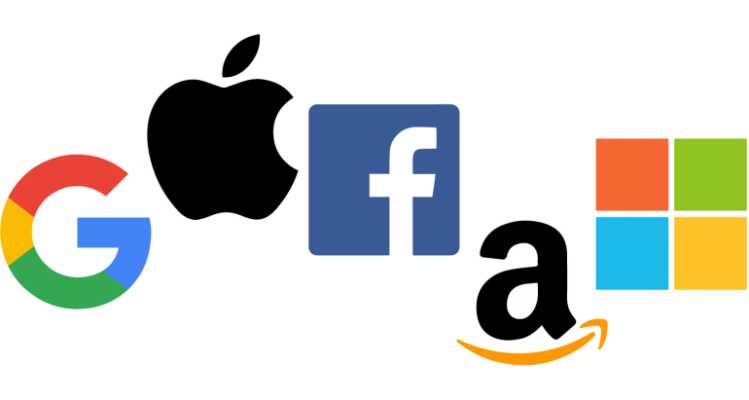Antitrust law aims to stop established companies from shutting out competitors. We should revive enforcement against exclusionary conduct, as well as structurally eliminate the platforms’ conflicts of interest and remove their incentive and ability to self-preference.
The act of self-preferencing, by which digital platforms give preferential treatment to their own services over the services of other companies, is fundamentally about the American Dream.
The American Dream, as defined by Wikipedia, is the set of ideals—democracy, rights, liberty, opportunity and equality—in which freedom includes the opportunity for prosperity and success, as well as an upward mobility for the family and children, achieved through hard work in a society with few barriers.
Ours is not a society with few barriers when digital platforms pick the winners and losers of our economy—particularly when they pick themselves as the winners.
Antitrust law aims to stop established companies from shutting out competitors. If entrepreneurs and businesspeople bring their hard work and the best products and services forward, an open and freely competitive market rewards them with prosperity and success.
To their credit, the Big Tech platforms started on their paths to dominance with innovation. But they’re each more than 20 years old and have dominated their arenas for more than a decade. Their enduring and expanding monopoly power has less and less to do with competition based on merit.
Google, Amazon, Apple, and Facebook have reached their controlling positions in large part through hundreds of acquisitions, many of which were illegal under the Clayton Act.
Big Tech’s enduring dominance is also fueled by illegal monopolization that violates Section 2 of the Sherman Act. The tech giants are each following Microsoft’s playbook, using what I call “platform privilege”—the incentive and ability to favor their own goods and services over those of competitors that depend on their platforms. They often eliminate rivals rather than compete against them to be the best.
Google picks itself as the winner in online search, digital advertising, mobile apps, video, reviews, travel, and maps, just to name a few. It uses Android to exclude competition just like Microsoft used Windows.
Amazon picks itself as the winner of commerce. Brands and retailers of all sizes have little choice but to sell on Amazon, which can peek inside their businesses, knock them out of the competition and knock them off. The same problems plague Amazon Web Services.
Apple too picks the winners and losers of apps on iOS and increasingly picks itself as the winner.
Facebook and YouTube pick the winners and losers of information. Their business models give preferential treatment to divisive and incendiary content that gets a reaction out of their billions of users.
Finding success through ingenuity, hard work and innovation is the American Dream. But illegally kicking competitors out of the game, stealing their innovations and leveraging monopoly power to take over markets instead of competing—that’s the American monopoly nightmare.
Luckily, we have the solutions, and we’ve overcome these same problems before. We should revive antitrust enforcement against exclusionary conduct by firms with monopoly power, which Section 2 of the Sherman Act forbids. On March 10, Senator Klobuchar introduced The Anticompetitive Exclusionary Conduct Prevention Act, co-sponsored by Senators Blumenthal and Booker, which aims to strengthen enforcement.
The bill is a step in the right direction, but we also need to structurally eliminate the platforms’ conflicts of interest and remove their incentive and ability to self-preference. Otherwise, enforcers will lose at a game of whac-a-mole. As Lina Khan wrote in her paper The Separation of Platforms and Commerce, the US has used structural separation as a standard regulatory tool and antitrust remedy in industries like banking, railroads, TV networks, and telecommunications.
Lawmakers should also require the platforms to offer equal access on equal terms to all, just as we’ve done throughout our history with the telegraph, railroads, buses, airlines, pipelines, and hotels, to name a few. Otherwise, the platforms will still control the competitive playing field and extract tolls from companies that must use their infrastructure.
Further, lawmakers should open up the gates of competition for innovative challengers through interoperability, data regulation, and by blocking mergers that fortify monopoly power.
Our economy, businesses small and large, and consumers would all benefit from immediate action. Consumers benefit from the choice, innovation, and quality that robust competition brings. Consumers are also citizens who benefit from the free flow of speech. They are the employees of companies that benefit when platform extraction ceases. And they are entrepreneurs who deserve a shot at the American Dream.
Editor’s note: This piece is based on an oral testimony given before the Senate Judiciary Subcommittee on Antitrust, Competition Policy, and Consumer Rights on March 10, 2010. Sally Hubbard is the Director of Enforcement Strategy at Open Markets Institute. She previously served as an Assistant Attorney General in the Antitrust Bureau of New York State, working for Attorneys General Spitzer, Cuomo, and Schneiderman.
The ProMarket blog is dedicated to discussing how competition tends to be subverted by special interests. The posts represent the opinions of their writers, not necessarily those of the University of Chicago, the Booth School of Business, or its faculty. For more information, please visit ProMarket Blog Policy.






